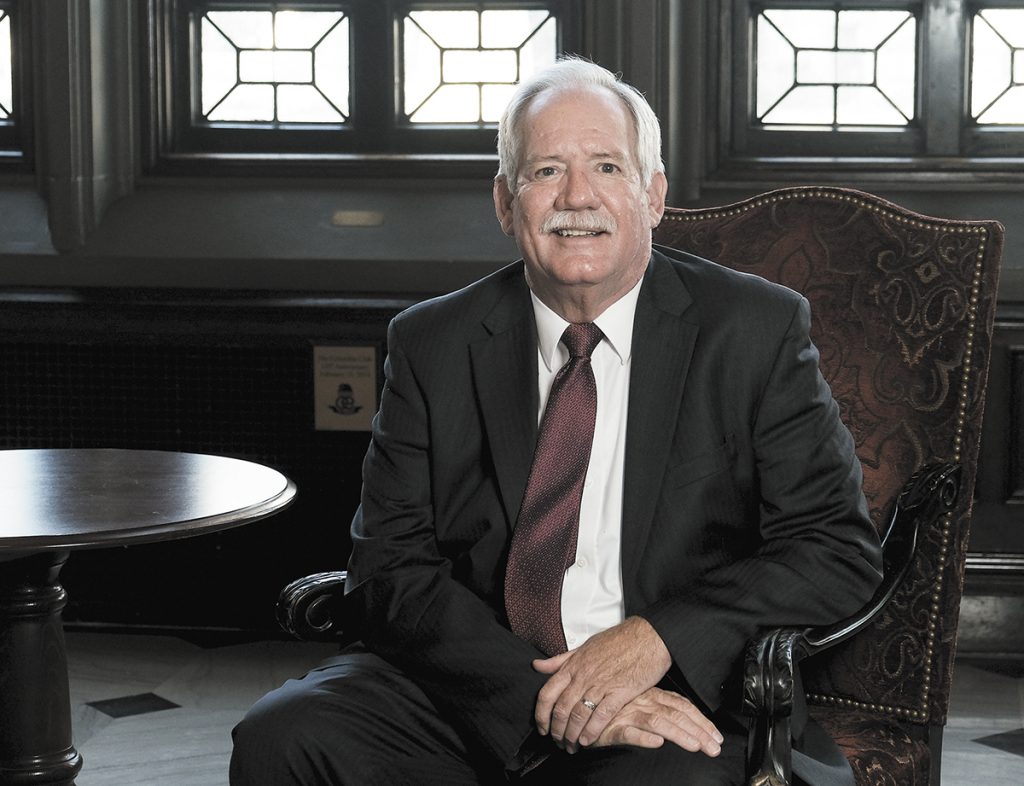Subscriber Benefit
As a subscriber you can listen to articles at work, in the car, or while you work out. Subscribe NowJeff Heck
Pro Bono Director, Indiana Legal Services Inc.
University of Notre Dame Law School, 1998
“Servant leader” may best describe the life’s work of Jeff Heck. He became a deputy sheriff in his native Marshall County, Indiana, before choosing law school over divinity school. After a legal career that included more than 20 years in private practice, Heck joined Indiana Legal Services in 2019 to supervise pro bono programs for the statewide legal aid agency. He’s also taken his servant spirit afar, making multiple mission trips to Haiti that inspired further mission work at his church back home.
What do you see as your primary role as pro bono director at ILS?
My primary role is to create opportunities and pipelines for private attorneys to assist in meeting the needs of our clients. ILS must limit its services to advice letters only for several thousand applicants each year because we do not have the capacity to represent everyone who applies. That number would be even higher without the valuable contributions of private lawyers willing to do pro bono work.
If you could change one law in Indiana, what would that be?
This varies with what I am working on at the time. One that comes to mind is to allow for the automatic expungement of arrest records after one year if no charges are filed, the charges are dismissed or the person is found not guilty. It is a waste of resources to require the filing of a petition asking the court to render a nondiscretionary decision when, in the eyes of the law, no crime has been committed.
What do you most like to do when you have free time?
Easy answer: spend time with our four grandchildren (pictures available upon request and often absent such a request).
If you hadn’t pursued a legal career, what do you imagine you might be doing?
A pastor. I spent a year deciding whether to go to law school or seminary. I finally figured out I could do ministry with a JD but not practice law with an MDiv.
What are some of the things that stayed with you after your mission trips to Haiti?
The resiliency of the Haitian people and their ability to find joy in their circumstances. In addition, running a free medical clinic without water or electricity in the mountains above Saint-Marc gave a few of us the inspiration to start a free medical clinic adjacent to our church in Greenwood.
What’s a great piece of advice you’ve received that makes a personal difference?
Twenty years from now you will be more disappointed by the things you didn’t do than by the ones you did. I first became a police officer because I knew if I did not, I would always wonder, “What if?” Several years later I went to law school for much the same reason.
What’s your best advice for someone who aspires to be a lawyer?
Talk to a number of lawyers from a wide variety of practice areas to make sure you understand what the daily life of a lawyer is like. Choose your law school with an eye toward how much debt you will have to incur compared to the jobs you are likely to get. A heavy load of debt can curtail your job options (or worse if you don’t get a high-paying job).
Who is someone who mentored you, and what did you learn from them?
Tom Brunner, the first partner I worked for at then-Baker & Daniels in South Bend. Tom pursued litigation with a clarity and grace that I have always tried to emulate. I would also add Paul Borghesani, who mentored me in transportation and logistics law. Paul taught me to always “size a problem” and to look for practical as well as legal solutions.
What advice would you give your younger self?
To be truly present in each moment and place. Too much of life can be wasted looking forward to the next thing and failing to enjoy the here and now.
What’s your pitch to lawyers who are skeptical of taking on a pro bono case?
Start with something small and limited and work your way up as you feel more comfortable. I believe two of the main reasons lawyers are wary of pro bono work are time constraints and lack of competency in an unfamiliar area of law, both of which are very valid concerns. We can address the time concern by, among other things, offering brief advice clinic opportunities where both the client and lawyer understand the representation ends when the meeting ends. Clinics are often limited in subject matter, such as expungement, so that competency concerns are more easily addressed by training, forms and on-site support. Often the clinic work then emboldens attorneys to take on more interesting cases which may involve extended representation.•
Read more Leadership in Law profiles.
Please enable JavaScript to view this content.

